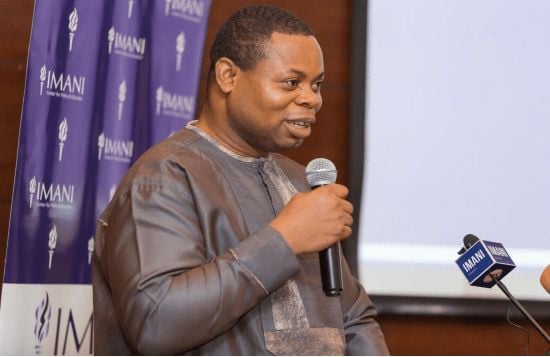The swift passage of the Energy Sector Levies (Amendment) Bill, 2025, in Ghana’s Parliament has ignited a firestorm of criticism, with many, including Franklin Cudjoe, the Founding President of IMANI Africa, denouncing it as a blatant act of exploitation against Ghanaian citizens. The bill, passed on June 3rd, 2025, following a walkout by minority members of Parliament, imposes a GH¢1 levy on every litre of fuel purchased, a move quickly dubbed the “dumsor levy” by critics who see it as a reincarnation of previous unpopular taxes aimed at addressing power sector challenges. Cudjoe expressed his astonishment at the speed with which the bill was rushed through Parliament, characterizing it as an unprecedented act of legislative pickpocketing. The rapidity of the process, with the bill being laid before Parliament and passed on the same day, has fueled suspicions and intensified public outcry.
At the heart of the controversy lies the perceived injustice of imposing yet another financial burden on Ghanaians, particularly in the context of existing economic hardships. Cudjoe, in his pre-approval critique, had implored the Energy Minister to reconsider the levy, arguing that it was ill-advised and unnecessary. He pointed to the significant waste within the energy sector, suggesting that addressing these inefficiencies would be a more prudent approach than burdening consumers with additional taxes. This sentiment resonates with many who believe that the government should prioritize internal reforms and cost-cutting measures within the energy sector before resorting to further taxation.
The government, however, defends the levy as essential for securing the financial resources needed to procure liquid fuel for power generation. Finance Minister Dr. Cassiel Ato Forson argues that current electricity tariffs are insufficient to cover fuel costs, necessitating the introduction of this new levy. This explanation, however, has done little to assuage public anger and skepticism. Critics question the transparency and accountability surrounding the use of funds generated from the levy, fearing that it may be mismanaged or diverted to other purposes, similar to concerns raised with previous levies.
The “dumsor levy” debate highlights the deep-seated distrust between the government and the citizenry when it comes to fiscal policies. The perception of persistent mismanagement within the energy sector, coupled with the government’s seeming reluctance to address these issues effectively, fuels public skepticism about the true purpose and potential impact of the new levy. The speed with which the bill was passed further exacerbates these concerns, raising questions about the government’s commitment to genuine public consultation and transparency.
The controversy surrounding the “dumsor levy” also underscores the broader challenges facing Ghana’s energy sector. The persistent need for supplementary funding mechanisms like this levy points to systemic issues within the sector that require comprehensive and sustainable solutions. Simply imposing additional taxes on consumers without addressing the underlying inefficiencies and waste within the energy sector is unlikely to resolve the recurring challenges and may only serve to further burden the already struggling populace.
Moving forward, it is crucial for the government to engage in open and transparent dialogue with stakeholders, including civil society organizations and energy experts, to explore alternative solutions to the energy sector’s financial woes. A thorough review of the sector’s operations, coupled with robust measures to curb waste and improve efficiency, is essential to restoring public trust and ensuring the long-term sustainability of Ghana’s energy infrastructure. The focus should shift from simply passing new levies to implementing comprehensive reforms that address the root causes of the sector’s financial difficulties. This approach will not only foster greater public confidence but also pave the way for a more stable and reliable energy future for Ghana.


